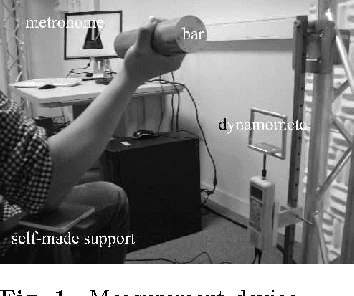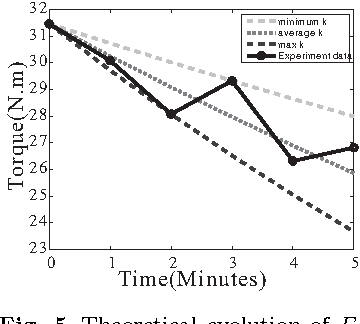Human Muscle Fatigue Model in Dynamic Motions
Paper and Code
Apr 08, 2012



Human muscle fatigue is considered to be one of the main reasons for Musculoskeletal Disorder (MSD). Recent models have been introduced to define muscle fatigue for static postures. However, the main drawbacks of these models are that the dynamic effect of the human and the external load are not taken into account. In this paper, each human joint is assumed to be controlled by two muscle groups to generate motions such as push/pull. The joint torques are computed using Lagrange's formulation to evaluate the dynamic factors of the muscle fatigue model. An experiment is defined to validate this assumption and the result for one person confirms its feasibility. The evaluation of this model can predict the fatigue and MSD risk in industry production quickly.
 Add to Chrome
Add to Chrome Add to Firefox
Add to Firefox Add to Edge
Add to Edge